Heart valve surgery is conducted as a treatment for the heart diseases like valvular heart diseases, where the heart valves are diseased or damaged, because of valvular insufficiency or valvular stenosis, affecting the function of the heart. Heart valve replacement surgery is an option, chosen by the doctors, after attempting to repair the valves or if the valve repair is not possible. In such cases, the heat valve will be an effective treatment. Heart valve replacement is also called as aortic valve replacement.
In most of the cases, the heart valve replacement surgery is performed as an open heart surgery. It involves the chest and heart to be opened in order to remove the valve that is damaged. And in its place, a prosthetic valve or new artificial valve is sewn in the same place as a replacement. However, it is also possible that the valve is possible to be replaced, without the need of opening the chest and heart. This surgery is called as minimally invasive surgery and it is done through performing small incisions done under the right chest muscle or near the breastbones.
Heart Valve Surgery in India for heart valve replacement or repair of Mitral valve, Aortic Valve, Tricuspid valve has significant advantage because of best heart doctors, surgeons, availability of cutting edge technology to deliver best outcome. Everyone year thousands of International Patients from Afghanistan, Middle East to African countries (Nigeria, Kenya, Congo, Ghana, Tanzania and and others), Europe, United States, Australia, other Asian countries visit India for its expertise in performing cardiac procedure at lowest rates in the world for world class quality patient care. The cost of most of heart surgery in India is less than one tenth of cost of same procedure in United States, Europe and at least 30 to 34% lower than in any of Singapore, Malaysia, Thailand & other Asian Countries.
Valves and Valvular Heart Diseases
Blood is pumped from the lungs to the heart, through the valves called tricuspid valve, pulmonary valve, mitral valve and aortic valve. If any of these valves are damaged or diseased, the vavluar heart diseases are occurred.
In case the valves in the heart become stenotic or stiff, pumping the blood through the valves will become harder for the heart muscles. The causes for this problem, could be aging, staphylococcus infection or rheumatic fever, etc., which lead to the blood to leak backards.
Symptoms from the valvular heart diseases
- Chest pain
- Difficulties in breathing
- Dizziness
- Rapid weight gain because of retention of the fluid
- Swelling or edema of abdomen, ankles or feet
- Palpitations
So, to correct these problems, the valve repair or replacement surgery is performed.
Traditional surgical methods involve performing the open-heat surgery, in which the chest has to be opened, physically for replacing the valve and the cardiopulmonary bypass machine, alternates the blood pumping into the heart.
The newly developed minimal invasive methods make this repair of heart valve surgery easier and less risky. It needs only smaller incisions to be made for faster recovery. TAVR (Transcatheter Aortic Valve Replacement) and Balloon Valvuloplasty are the two important procedures. TAVR is a hybrid procedure performed as an alternate to aortic valve stenosis. Balloon Valvuloplasty is used to treat valve stenosis cases and it is performed as some part of the procedure called catheterization. The diseased valve either will be repaired by inserting a ring for supporting the valve or is replaced with either an artificial valve that can be a mechanical one or tissue from human or animal)
The procedures performed to assess the heart, while resting as well as during the exercise are ECG (Electrocardiogram), cardiac catheterization, CT (Computed Tomography) scan, chest X-ra, echocardiography, MRI (Magnetic Resonance Imaging), ultrafast CT scan, electrophysiological studies, Holter monitor, myocardial perfusion scans, signal-averaged ECG and radionuclide angiography.
Risks Associated with the Procedure
The possible risks, but are not limited to, are:
- Pneumonia
- Bleeding either during the surgery or after
- Breathing problems
- Blood clots that may lead to heart stroke, attack or any lung problems
- Abnormal heart rhythms or arrhythmias / dysrhythmias
Before the Procedure
- You need to inform the doctor, if you are in of the conditions, like, expecting, pregnant, lactating, allergenic, bleeding disorders, use of heart pacemaker, smoking, etc., or under any other medication.
- You need to fast to keep the stomach empty from 8 hours before the surgery.
- Doctor explains the procedure of the surgery and you can ask any questions related to the procedure.
- You have to sign consent giving permission to perform the surgery. Ask any questions, if needed, after reading the form.
- Doctor checks your medical history thoroughly and physical examination is done to ensure you to be in good health to undergo the surgical procedure.
- Some diagnostics tests like blood tests may be needed to be done.
- Doctor may do certain specific preparations, based on your specific medical conditions.
During the Procedure
Though the procedure is done slightly in different ways by the doctors, the common and general procedure is the following.
- You need to remove the jewelry or accessories and cloths and wear a gown.
- You have to empty the bladder.
- You will lye on the operating table on your back.
- An Intravenous line and catheters are inserted into the hand, neck and wrist respectively to monitor the blood pressure and heart state. Alternately, catheter into subclavian is also inserted.
- You are sedated and then breathing tube is kept in the lungs and a ventilator will be connected for breathing during the surgery.
- Your blood pressure, blood oxygen levels, heart rate and breathing are consistently monitored by an anesthesiologist.
- They will insert catheter to drain out the urine from the bladder.
- Antiseptic solution is applied on the surgical site to cleanse.
- An incision is made on the chest.
- The breastbone or sternum is divided and spread to expose the heart.
- Cardiopulmonary bypass machine is connected to pump the blood into the heat to keep the heart running during the surgery. Then blood is diverted to the bypass machine.
- Then heart is stopped using a cold solution.
- Valve is repaired if can be done, by separation of the leaflets fused in the valves, reshape of the parts of the valve torn leaflet repair. The diseased valve will be removed and will be replaced with an artificial valve.
- After the procedure, the blood will be redirected to the tubes and heart and then the machine will be removed.
- The electrical activity of the heart will be revoked by small shocks applied with small paddles.
- After the heart beat starts, the heart is assessed by the doctor to ensure the function of the valves and heart.
- If needed, temporary wires are inserted into the heart for pace making, during the recovery period initially.
- Then the sternum is rejoined and sewn using small wires.
- The skin also will be sewn together.
- Then the incision is closed by surgical staples or sutures.
Cost of Heart Valve Surgery
The above Package Cost is a tentative Approximate Package Estimate, which includes initial investigations & specialists screening, stay in a Private Room wherein patient’s assistant or relative can also stay with patient, doctor / surgeon fee, nursing care, medicines & consumables, Airport Pick-Up & Drop.
In order to access, exact estimate of treatment package cost, do email us at [email protected] all your medical reports.
On receiving your medical reports, we will revert to you within 24 Hours with right estimate package after getting your medical reports examined by best team of doctors at best hospitals in India. We will also assist you in traveling part, which includes, airfare booking, medical visa invitation, airport pick-up and drop, hotel stay & visit for any sightseeing. With our 10 years of expertise in delivering highly caring International Patients Assistance Services, you can completely rely on us in every step of your recovery. Our all International Patient Assistance Services are absolutely FREE!!! as World Health Expert India (WHXI) is an official associate of India’s Best Hospitals & Specialists.

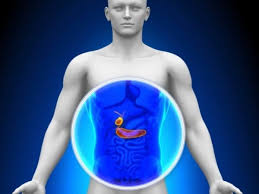

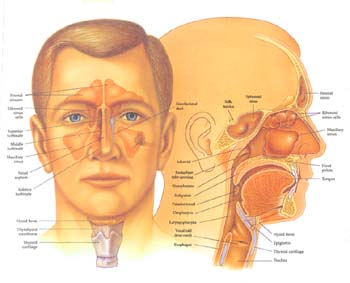
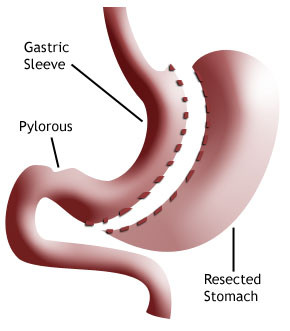


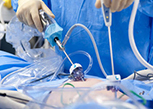
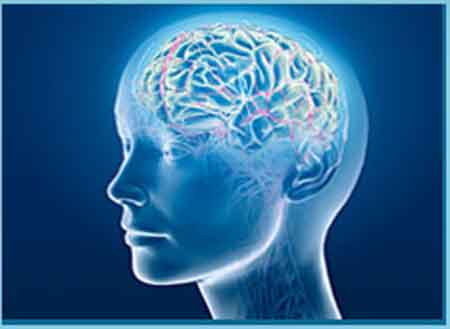

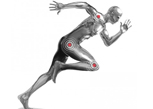





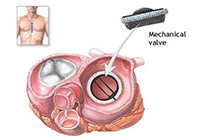

 Jake, Male, 55, UK
Jake, Male, 55, UK
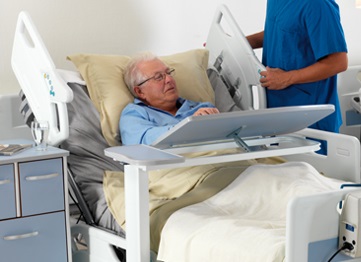 Sulaiman, Male, 68, Africa
Sulaiman, Male, 68, Africa
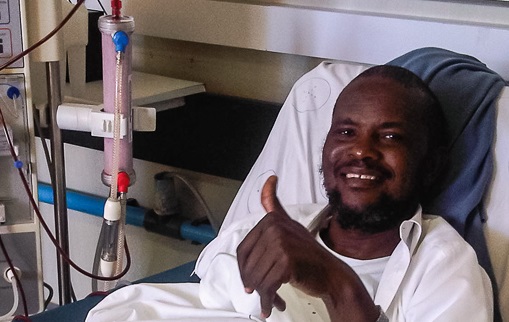 Azizi, Male, 44, Swahill, East Africa
Azizi, Male, 44, Swahill, East Africa
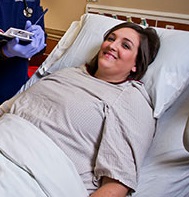 Abam, 27, Female, Ghana
Abam, 27, Female, Ghana
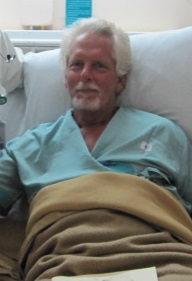 Fazah, 60, Male, Africa
Fazah, 60, Male, Africa
 George, 48 years, Male, UK
George, 48 years, Male, UK
 Jacob, 58 years, Male, US
Jacob, 58 years, Male, US
 Halisi, 40 years, Female, Kenya
Halisi, 40 years, Female, Kenya
 Saarah, 56 years, female, UK
Saarah, 56 years, female, UK
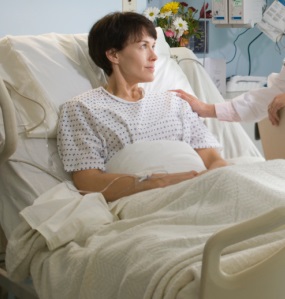 Adhra, 35 years, female, Tanzania
Adhra, 35 years, female, Tanzania
